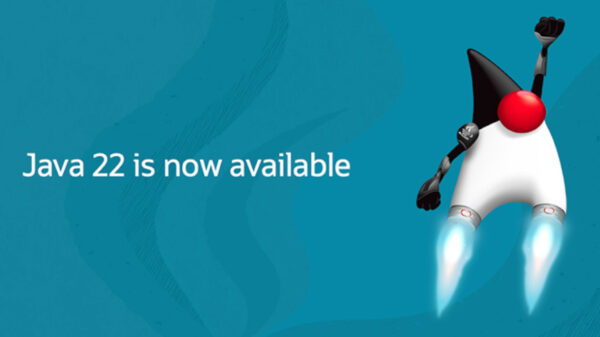Azul, the only company 100% focused on Java, released its first annual Azul State of Java Survey & Report, a guide to understanding the current pulse, trajectory and sentiments surrounding Java. The report includes responses from more than 2,000 Java users globally to unveil unparalleled insights into how Java holds its ground in today’s dynamic technology environment and its impact on enterprises large and small.
Areas explored in the survey include Java adoption trends, the effect of Oracle’s latest Java pricing change; the migration of Java apps to the cloud and how companies are optimizing cloud costs; as well as security considerations for common vulnerabilities and exposures (CVEs).
Of all the businesses surveyed for this report, an overwhelming 98% use Java in their software applications or infrastructure, and 57% of those organizations indicate that Java is the backbone of most of their applications. When including Java-based frameworks, libraries and other languages that use the Java Virtual Machine (JVM), the data shows that Java continues to play a fundamental role in today’s enterprises.
Oracle Java’s Licensing Changes Have Enterprises Looking Elsewhere
More than 8 out of 10 respondents (82%) using Oracle Java said they are concerned about the new Java SE Universal subscription pricing introduced in January The fourth major licensing/pricing change in four years, the cost of Oracle Java changed from being based on the number of processors used by Java applications to the total number of employees and contractors in the organization. More than 7 out of 10 (72%) respondents said they were considering open source alternatives such OpenJDK, and of those who were not, 14% said it didn’t occur to them that they could.
While Oracle remains a strong player in the Java market with 42% of respondents indicating they still use at least one instance of Oracle Java, 74% of those organizations stated they also use a JDK from at least one OpenJDK provider. About 60% of companies have chosen an OpenJDK distribution over Oracle Java SE.
“As with most universities, we are always looking for efficiency from our IT vendor relationships, not just by lowering costs, but also by eliminating uncertainty and distractions. Supporting so many departments and managing a wide range of vendor relationships means I can’t afford to worry about unexpected headaches such as price increases and audits,” said Emiliano Fisanotti, vendor management specialist and University Software Licensing Community executive member, The University of Sydney. “With Azul we found a trusted partner who was easy to work with and provided a secure, drop-in replacement for Oracle Java.”
Other key findings of the State of Java Survey & Report 2023 include:
Java Plays a Critical Role in Cloud Cost Optimization
90% of respondents are using Java in a cloud environment: public (48%), private (47%) or hybrid (40%). The cloud landscape is rapidly transforming, with organizations continuing their advance to the cloud for scalability, flexibility, productivity, and agility – yet cost and security remain two of the leading challenges. In a telltale sign of overprovisioning cloud resources, nearly 70% of companies say they are paying for cloud capacity that they are not using.
As would be expected in uncertain economic times, the majority of companies (95%) have taken steps to lower their cloud costs in the past year. To reduce public cloud costs, 46% of businesses are taking advantage of a high-performance Java platform to use cloud resources more efficiently.
“Enterprises often don’t use all the cloud computing they pay for due to the over-provisioning of virtual servers required to accommodate spikes in demand from ultra high-performing applications and those where end-user experience is paramount. But this creates challenges for IT teams facing a difficult budget environment that requires more efficient use of resources,” said Jevin Jensen, research vice president, Intelligent CloudOps, IDC. “Running Java applications and infrastructure with a faster and more efficient JVM can provide superior performance, consistency, and the capacity to address these challenges, gaining tangible business results today.”
Log4Shell Vulnerability Had Widespread Security Impact on Organizations
The widespread impact of a single compromised Java-based logging library (Log4j) emphasizes the ongoing threat of security vulnerabilities in Java applications. Almost 80% of respondents reported being affected by Log4Shell, which the Department of Homeland Security called “one of the most serious software vulnerabilities in history.” Nearly half were impacted by the extra time required of their engineering teams to address this vulnerability, and 30% were impacted by attempts to exploit the vulnerability.
Third-party and open-source applications and libraries are the most concerning sources of CVEs – nearly two out three survey respondents say exactly that, with 57% listing open-source libraries and applications as the most concerning sources of CVEs, and 51% specifying that third-party libraries and applications are the most concerning sources of CVEs.
“As the State of Java Survey & Report data reveals, Java’s enduring prominence and role in enabling enterprises to thrive is undeniable, and high-performance JVMs are playing a pivotal role in meeting application service levels and cloud cost optimization. The choices businesses make around Java directly impact their operational efficiency and the bottom line,” said Scott Sellers, co-founder and CEO at Azul. “Concerns raised over Oracle’s recent Java licensing and pricing changes also highlight a need for stability and trust in the technology partnerships that businesses form with their strategic vendors. Our sole focus is to champion this trust, ensuring that organizations of all sizes can continue to innovate, optimize and grow with the best Java solutions and strategies.”
To access the full Azul State of Java Survey & Report 2023, click here.













































































































